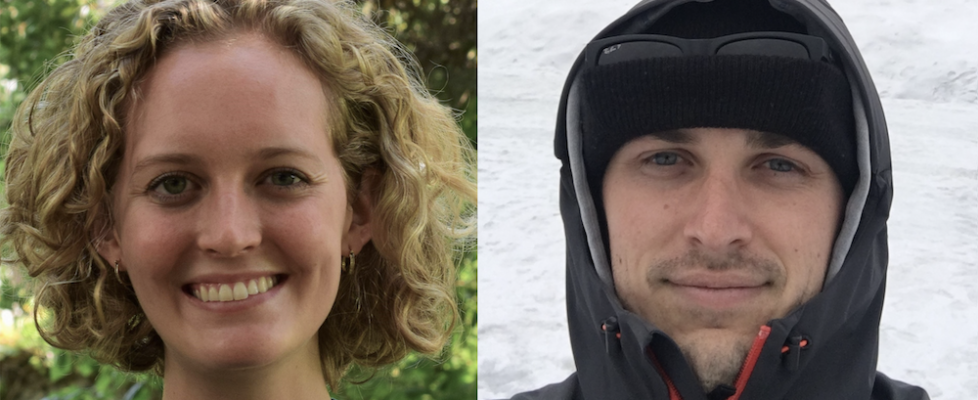Plant Immunity; Exoplanets – Mar 30
Wonderfest Science Envoys are early-career researchers with special communication skills and aspirations. Following short talks on provocative modern science topics, these two Science Envoys will answer questions with insight and enthusiasm:
• UC Berkeley plant biologist Chandler Sutherland on It’s Not Easy Staying Green: Understanding Plant Immune Systems — Every day, plants resist an onslaught of viruses, bacteria, fungi, and herbivores. However, plants can’t make antibodies or move immune cells around with a circulatory system, as we can. Understanding plant immune systems teaches us about how human immunity evolved, and is helping us learn how to protect our agricultural crops against disease.
• Stanford astrophysicist Alex Madurowicz on Imaging Extrasolar Planets — Technical advancements in the next decade will enable telescopic observation of smaller and fainter worlds that orbit other stars, including Earth-like planets. Going further, bold concepts for the next century completely reimagine the concept of a telescope — allowing resolution of details like continents, forests, and even extraterrestrial cities.
This event is free. But what value do these science insights have FOR YOU? Accordingly, please use the space below to contribute to nonprofit Wonderfest, and help to promote the scientific outlook broadly — as through our outstanding Science Envoy Program.
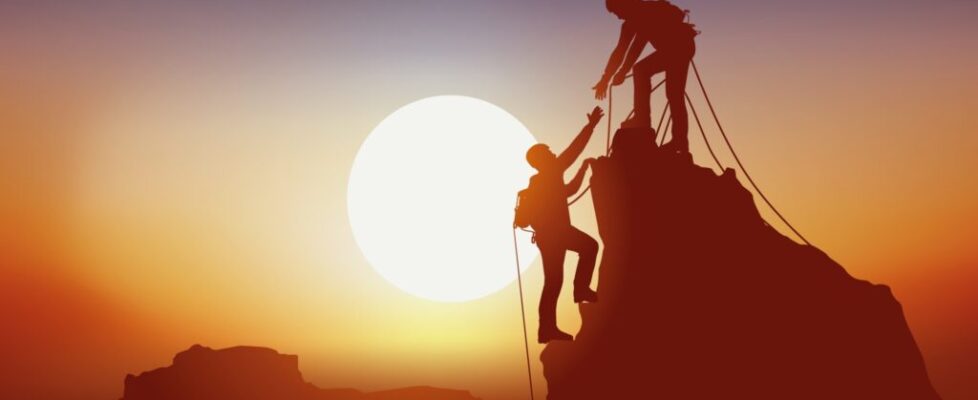
Science of Happiness – Mar 28
What does it mean to be happy, and what can one do to be happier? Scientific research is yielding a heartwarming picture: Happiness is linked to feelings and behaviors that are prosocial — that contribute to a greater good. Happy people routinely report having strong, supportive social connections; they find common humanity with others, and assume trust and good intent. Despite popular assumptions about competitiveness, self-reliance, and self-interest, evidence indicates that dedicated psychological systems (for nurturance, affiliation, and shared joy) incline humans toward cooperation and generosity. Increasing happiness, it seems, hinges largely on prioritizing interpersonal belonging and genuine kindness — both towards ourselves and other people.
Our speaker, Dr. Emiliana Simon-Thomas, is Science Director at UC Berkeley’s Greater Good Science Center. She is a leading expert on the neuroscience and psychology of prosocial skills that boslter human happiness.

Dr. Emiliana Simon-Thomas
This unticketed, admission-free, Wonderfest event will be COVID-free, as well, because we ask that attendees be masked (except when dining/drinking) and vaccinated. The warm feeling of Wondernaut(!) camaraderie radiates through masks and across wide seat-spacing. Please join us! And please consider donating to nonprofit Wonderfest in the Eventbrite space, below. (Ignore any mention of "tickets.")
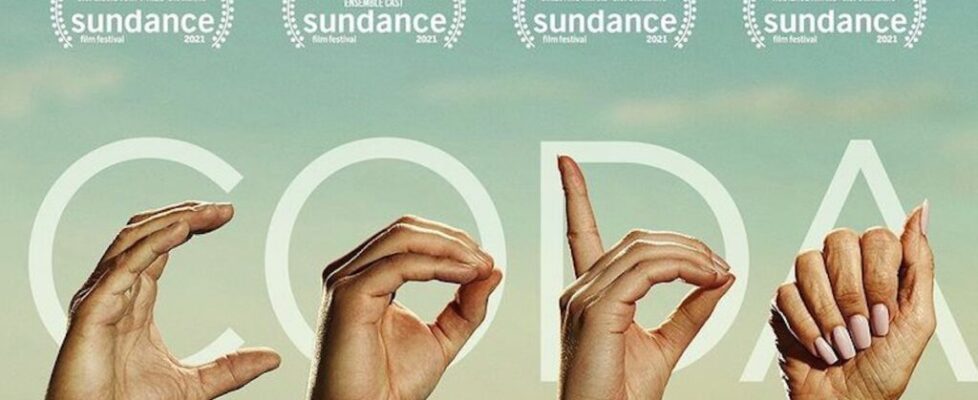
CODA + Audiology – Mar 22
Wonderfest joins St. Helena’s Cameo Cinema to present Q&A with Dr. Melanie Gilbert immediately following a special screening of 2021’s CODA (95% “Fresh” at Rotten Tomatoes). Peter Travers of ABC News calls CODA (children of deaf adults) “an emotional powerhouse … one of the year’s best.” This Science on Screen event promises to be a lively journey deep into sound and silence — exploring the adaptive power of the brain and the impact technological advances can have on individuals with hearing loss.
Our guest speaker, Dr. Melanie Gilbert, is cochlear implant research audiologist in the Music and Sound Perception Lab at UC San Francisco.
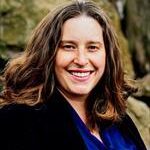
Dr. Melanie Gilbert
Map: [https://goo.gl/maps/hhbaEDVoAGVXxVEZA]
Purchase tickets for this full Science On Screen event at the Cameo Cinema ticket website specified below.
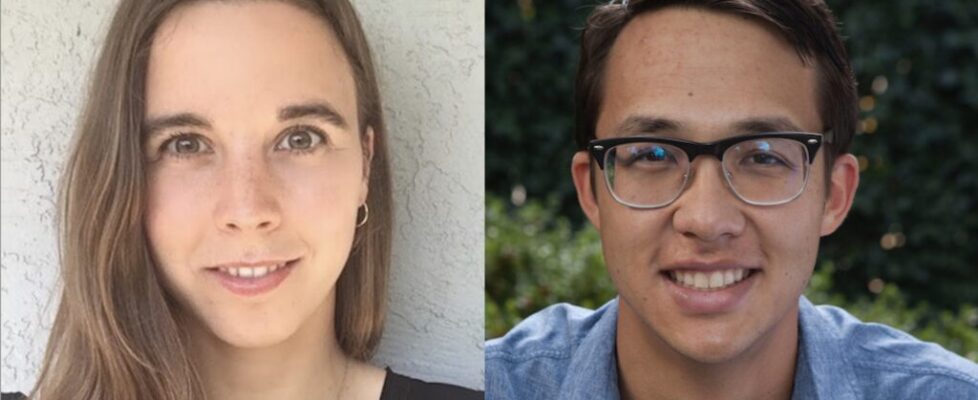
Uniqueness; Metamorphosis – Mar 17
Wonderfest Science Envoys are early-career researchers with special communication skills and aspirations. Following short talks on provocative modern science topics, these two Science Envoys will answer questions with insight and enthusiasm:
• UC Berkeley psychologist Antonia Langenhoff on What Childhood Teaches Us About Human Uniqueness — Why are humans the only species that flies into space and invents vaccines? Social cooperation is the key. Insights from Developmental Science show us how humanity’s unique cooperative skills emerge, surprisingly, in very young children.
• Stanford marine biologist Paul Bump on Underwater Metamorphosis, a Larva’s Tale — Creatures from across the animal kingdom, from butterflies to frogs to worms, undergo metamorphosis. A humble marine worm is challenging our understanding of metamorphosis, and of how all adult animals develop.
This event is free. But what value do these science insights have FOR YOU? Accordingly, please use the space below to contribute to nonprofit Wonderfest, and help to promote the scientific outlook broadly — as through our outstanding Science Envoy Program.

Complex Adaptive Systems – Mar 10
The human immune system is complex — so complex and dynamic that it can actually adapt to a changing environment; i.e., it can evolve. Accordingly, we call the immune system a complex adaptive system. Within biology, species are complex adaptive systems whose environmental fitness tends to improve over time; species evolve. Sometimes, a species population divides, and each part evolves in isolation. Genetic mismatches may then arise that make hybrid creatures sterile and prevent re-mixing of the two populations. Similar processes operate in other complex adaptive systems, where isolation leads to crucial mismatches — in biological systems (such as the immune system and the brain) and in cultural systems (such as language and technology). Understanding cultural mismatches, in particular, may have large-scale consequences: informing humanity’s attempt to mitigate xenophobia.
Our speaker, Dr. David Queller, is Professor of Biology at Washington University in St. Louis, Missouri. His research explores the evolution of cooperation both experimentally (among microbes) and theoretically (using population genetics and game theory).
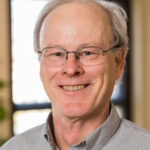
Dr. David C. Queller
Please support Wonderfest's nonprofit mission to "enlarge the concept of scientific community" by contributing in the Eventbrite space, below.
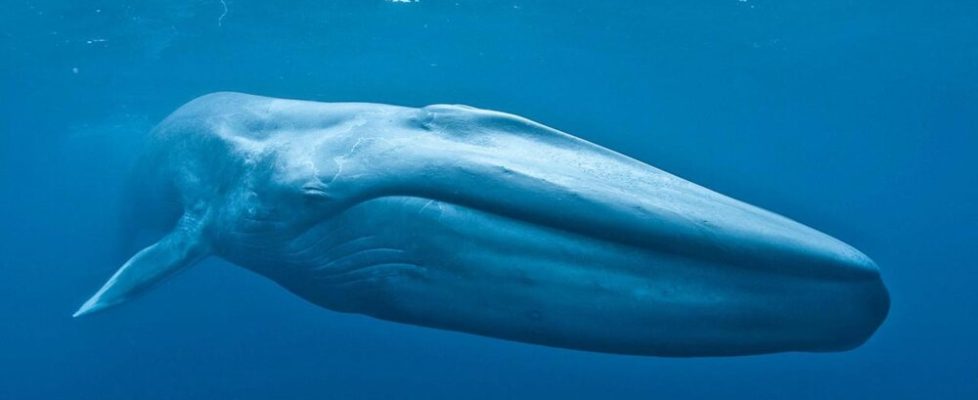
Sea Life Q&A – Mar 3
Marine scientist Dr. Stephen Palumbi answers our questions about whales (and other marine life) in this online encore presentation of Wonderfest’s in-person February-6th event in St. Helena. With an easy-to-procure library card number, begin by watching 2021’s The Loneliest Whale. [It’s streaming via the FREE Kanopy service, associated with many public libraries.] The Loneliest Whale (88% “Fresh” at Rotten Tomatoes) is a cinematic quest to find “the 52-hertz whale,” apparently condemned to a life of solitude by the unique frequency of its call to other whales. Time magazine’s Sephanie Zacharek says that “this lonely seafaring fellow … has become a metaphor for our need to connect and communicate with others.” In contrast, Professor Palumbi has a wondefully rich life in science communication — with his students at Stanford and with the public in general. Even if you can’t watch The Loneliest Whale beforehand, join Wonderfest to explore the marine world via Zoom with Prof. Palumbi.
Dr. Stephen Palumbi is Professor of Marine Biology at Stanford University. He does research at Hopkins Marine Station, and he is Senior Fellow at Woods Institute for the Environment. Steve is the author of 2014’s The Extreme Life of the Sea with his son, Anthony Palumbi.
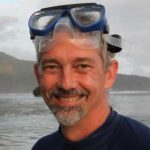
Dr. Stephen Palumbi
Watch The Loneliest Whale at home via the FREE Kanopy video streaming service, then use the "WHERE" link (above) to access Wonderfest's LIVE Zoom Q&A with Dr. Palumbi.
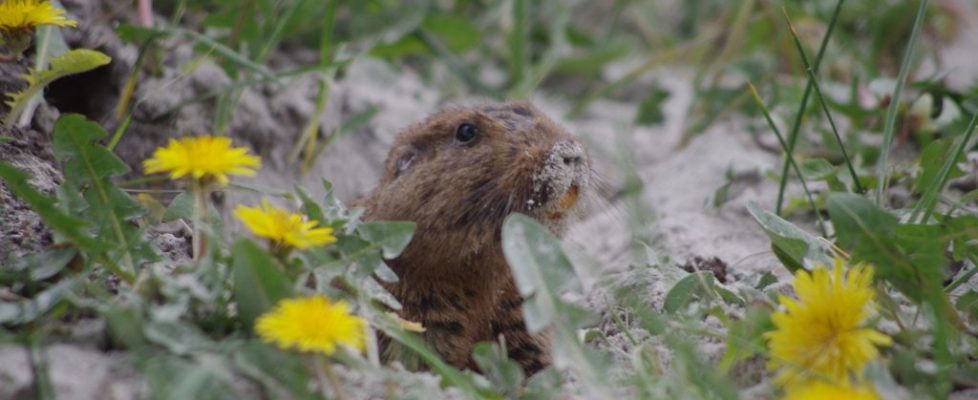
Animal Behavior – Feb 28
Many of us are captivated by the behavior of wild animals: a pride of lions fighting off a clan of hyenas, a honeybee dancing to communicate the location of food, the crazy acrobatic courtship displays of male lance-tailed manakins. What is it like to be a biologist who studies the behavior of such creatures? What are the implications for the study of human behavior? Using examples drawn from her work with rodents known as tuco-tucos, tojos, and tokoros (pictured above), Dr. Eileen Lacey will describe the types of questions, concerns, and sometimes astounding solutions that field biologists employ in their quest to understand why animals do what they do.
Dr. Eileen Lacey is Professor and Co-Chair in the Department of Integrative Biology at UC Berkeley. She also leads the Vertebrate Social Behavior and Population Biology Laboratory at Cal’s Museum of Vertebrate Zoology.
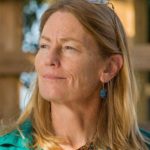
Dr. Eileen A. Lacey
This admission-free Wonderfest event will be COVID-free, as well, because we ask that attendees be masked (except when dining) and vaccinated. The warm feeling of Wondernaut camaraderie radiates through masks and across social distance; please join us!
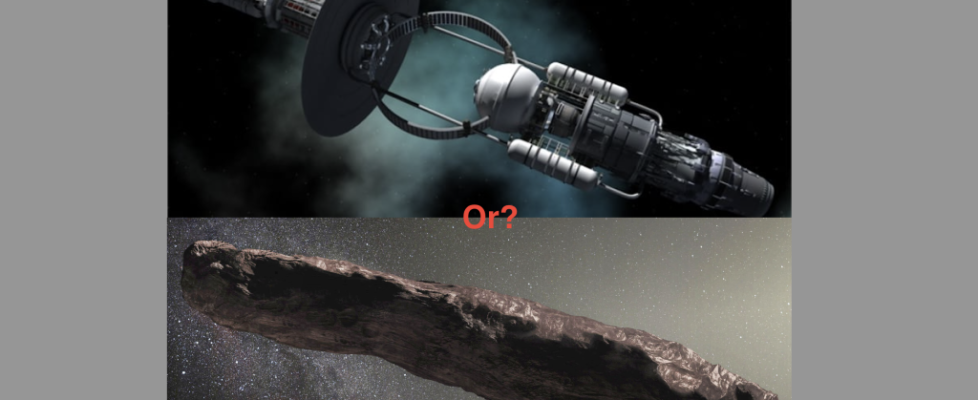
Evidence of ET? – Feb 22
In 2017, astronomers detected an elongated object swinging past Earth on its way out of the solar system. The size, shape, and motion of Oumuamua (roughly “scout” in Hawaiian) suggested to a few scientists that an interstellar spaceship had paid a visit. Perhaps the most outspoken of these scientists is Harvard astronomer Dr. Avi Loeb. Of Professor Loeb’s new book, Extraterrestrial: The First Sign of Intelligent Life Beyond Earth, Caltech physicist Sean Carroll says, “Avi Loeb’s sumptuously written book will provoke you to think about the possibility of intelligent life elsewhere in the universe in new and stimulating ways.” Via this live online interview with Prof. Loeb, Wonderfest joins the Commonwealth Club in facilitating the stimulation!
Dr. Abraham (Avi) Loeb is Professor of Science and Chair of the Astronomy Department at Harvard University. He is the author of four books and over 700 scientific papers. Dr. Loeb is also director of the Institute for Theory and Computation at the Harvard-Smithsonian Center for Astrophysics.
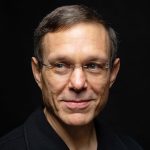
Dr. Avi Loeb
The Commonwealth Club [https://www.commonwealthclub.org/events/2022-02-22/avi-loeb-intelligent-life-beyond-earth]
Use discount code Wonderfest22 to purchase FREE tickets via the Commonwealth Club website presented in the "Where" field (above) and in the "Collaborator" field (below).
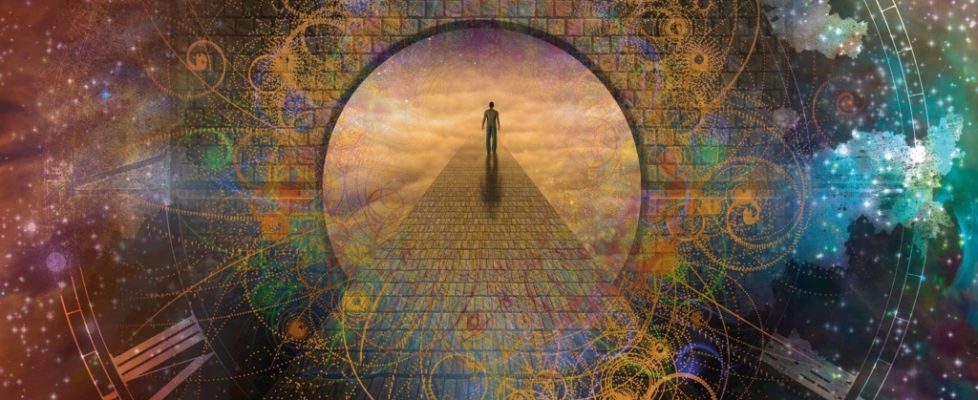
The Edge of Reality – Feb 16
Modern physics provides a stunning view of the universe on scales both vast and miniscule, and, of course, on the scale of our everyday lives. In his new book, This Way to the Universe: A Theoretical Physicist’s Journey to the Edge of Reality, Dr. Michael Dine describes humanity’s — and his own — attempts to face profound mysteries like Dark Matter, Dark Energy, and (even) why the universe consists of something rather than nothing! Prof. Dine describes the danger of falling in love with math as he shows how our arcane-but-essential approaches to understanding the stuff of reality — like String Theory — may be experimentally testable.
Dr. Michael Dine is Distinguished Professor of Physics at the Santa Cruz Institute for Particle Physics, UC Santa Cruz. During this Commonwealth Club interview, audience Q&A will take place in the virtual chat bar.
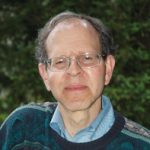
Dr. Michael Dine
The Commonwealth Club [https://www.commonwealthclub.org/events/2022-02-16/michael-dine-way-universe]
Use discount code Wonderfest22 to purchase FREE tickets via the Commonwealth Club website presented in the "Where" field (above) and in the "Collaborator" field (below).

Secret Life of Whales – Feb 6
Wonderfest joins St. Helena’s Cameo Cinema to present a special screening of 2021’s The Loneliest Whale documentary followed by Q&A with Stanford marine scientist Dr. Stephen Palumbi. The Loneliest Whale (88% “Fresh” at Rotten Tomatoes) is a cinematic quest to find “the 52-hertz whale,” apparently condemned to a life of solitude by the unique frequency of its call to other whales. Time magazine’s Stephanie Zacharek says that “this lonely seafaring fellow … has become a metaphor for our own need to connect and communicate with others.” In contrast, Professor Palumbi has had a wonderfully rich life in science communication — with his students at Stanford and with the public in general. His post-screening presentation (with audience Q&A) will shine light on the “secret life of whales,” in general.
Dr. Stephen Palumbi is Professor of Marine Sciences at Stanford University. He does research at Hopkins Marine Station, and he is Senior Fellow at the Woods Institute for the Environment. Steve is the author of 2014’s The Extreme Life of the Sea with his son, Anthony Palumbi.

Dr. Stephen Palumbi
Purchase tickets ($10) for this special Science on Screen event via the "Tickets" link, below. The Cameo Cinema observes the CinemaSafe protocols of the National Association of Theater Owners. The well-ventilated and high-ceilinged theater is santized between shows, and all staff wear N95 masks. Any patron without a mask will be provided with one.
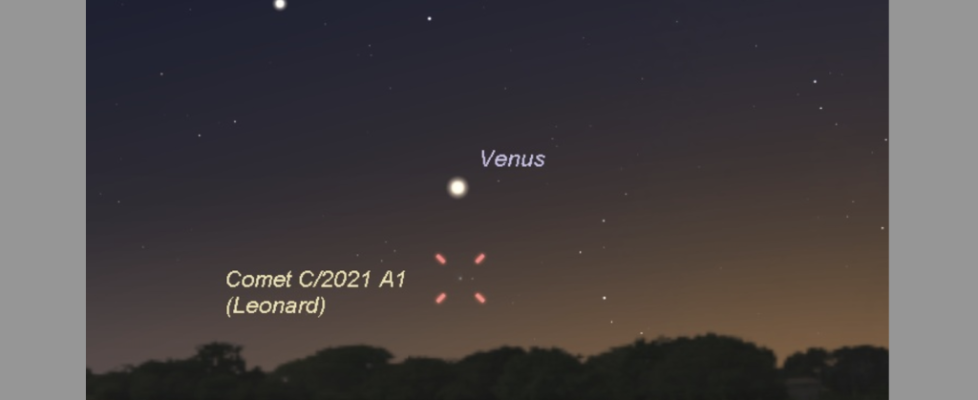
Comet Leonard this Weekend, near Venus in Evening Sky
I’d like to alert you to a good opportunity to see the best comet of 2021 this weekend: Comet Leonard. Feel free to pass this information to your family and friends, if you wish.
A comet is a ” dirty iceball” (or an ” icy dirtball” — depending on the relative amounts of ice and dust) that comes from the deep freeze of the outer Solar System, beyond the orbit of Neptune. It heats up as it gets closer to the Sun, and the ices sublimate, becoming gas. This releases a cloud of dust that becomes visible by reflecting sunlight; the ” coma” of dust surrounds the nucleus, and the tail points roughly away from the Sun. The gas can also glow, and it points directly away from the Sun.
Comet Leonard, the brightest comet of 2021, has now conveniently moved from the morning sky to the evening sky, and will be very close to the brightest planet (Venus) the next few nights, making it easier to find. In clear, dark skies with a low southwest horizon, the comet’s nucleus might be visible to the unaided eye as a faint and fuzzy ”star.” You are much more likely to see it through binoculars; this will reveal the coma and perhaps also the tail. Photographs obtained with a digital camera mounted on a tripod will reveal more of the coma and tail (typical exposure time 4-20 seconds). You can find many excellent photos of the comet online (e.g., https://earthsky.org/astronomy-essentials/comet-leonard-might-become-2021s-brightest-2022/). After passing closest to the Sun on January 3, 2022, the comet will be ejected from our Solar System.
To find Comet Leonard, look to the southwest shortly after sunset in a darkening sky — around 5:20-5:30 pm (local time) would probably be best. It will be a little below Venus (the brightest object in the southwest sky) on the evening of Friday, December 17; see the attached chart (made by Eddie Irizarry using Stellarium software). On Saturday, December 18, it will be a little below and to the left of Venus, and on Sunday, Dec. 19, it will be farther to the left of Venus (and still a little below). Slowly scan that part of the sky while looking through binoculars. You’ll need to have a clear, low southwest horizon, not blocked by trees, hills, buildings, or other obstructions. Beyond Dec. 19, the comet could still be visible (progressively farther to the left of Venus), but it is expected to fade.
Good luck, clear skies, and happy holidays,
Alex
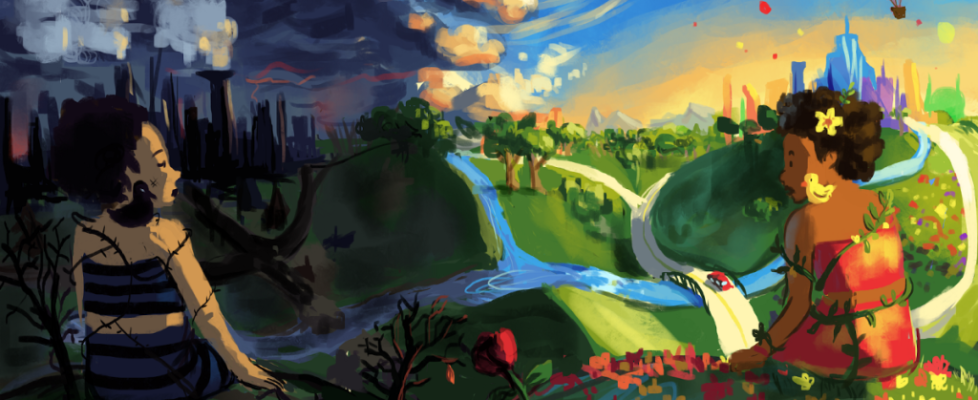
Climate & Social Justice – Jan 19
Climate change and social justice are two intersecting crises that will define the coming decades on Earth. According to Prof. Dan Kammen, addressing both challenges together makes each campaign more effective, both for meeting and setting new domestic climate and social justice targets, and as part of a coherent pro-justice, pro-poor, pro-job, and pro-climate export policy. This online event will begin with a live ~ 30-minute presentation by Prof. Kammen. Then Dan will answer audience questions about his presentation and about climate and social justice, in general.
Dr. Daniel Kammen is Professor of Energy and founding director of the Renewable & Appropriate Energy Laboratory (RAEL) at UC Berkeley. He has recently returned from the UN Climate Change Conference in Glasgow (COP26) where he served as USAID’s Senior Advisor for Energy, Climate, and Innovation.
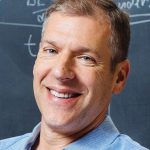
Dr. Dan Kammen
Castro Valley Science [http://cvscience.us]
Alameda Free Library [https://www.alamedafree.org/Home]
Registration is capped at 115 Eventbrite registrants. However, Wonderfest's Zoom license accommodates only 100 online connections. In the unlikely event that ALL registrants try to participate, then 15 will be disappointed. Note that donating to Wonderfest does not guarantee participation. Upon request, the donation of any non-participant will be immediately refunded.
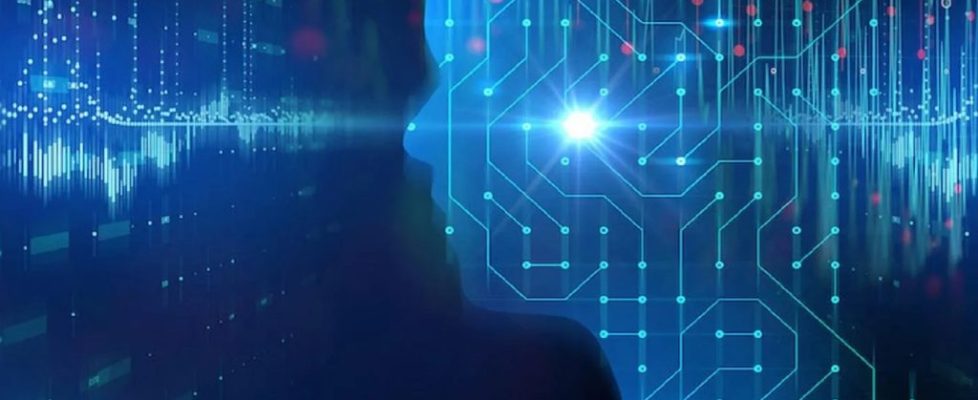
Uncertainty in AI – Nov 29
With increasing frequency, AI algorithms are making high-impact decisions: When should a self-driving car slam on the brakes? Can an MRI scan reliably detect a tumor? Will facial recognition software identify you as a Most Wanted fugitive? AI algorithms need to be aware of their confidence level — to “know what they don’t know” — in order to be reliable and safe. Fortunately, time-tested ideas in statistics are providing solutions. How are old and fundamental mathematical concepts blending with recent tech breakthroughs to create safe, uncertainty-aware AI?
Our presenter, Dr. Stephen Bates, is a postdoctoral researcher in two departments at UC Berkeley: Statistics and Electrical Engineering & Computer Science. He is also a distinguished alumnus of Wonderfest’s Science Envoy Program.
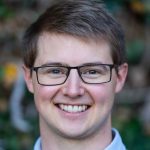
Dr. Stephen Bates
Marin Stargazers [https://www.facebook.com/groups/252208946754119/]
This admission-free Wonderfest event will be COVID-free, as well, because we ask that attendees be masked (except when dining) and vaccinated. The warm feeling of Wondernaut camaraderie radiates through masks and across social distances; please join us! Also, kindly use the Eventbrite space, below, to help Wonderfest promote the understanding and appreciation of science. (Please ignore any mention of "tickets"!)
COSMIC BONUS: If early-evening skies are clear during the hour that precedes this Wonderfest event, attendees can enjoy telescopic views of Jupiter, Saturn, and Venus. Wondernauts need only ascend the grassy knoll of HopMonk's Beergarden to reach Dan Smiley and his impressive telescope. BIG THANKS to Marin Stargazers and HopMonk Tavern for trying this pilot pre-Wonderfest astronomy program!

Imagination & Learning – Nov 18
Conventional wisdom suggests that knowledge and imagination — science and fantasy — are deeply different from one another. However, new insights into childhood development challenge this distinction. In fact, exactly the same abilities that allow children to learn about the world also allow them to imagine alternative worlds. Research in computational theories of cognitive development is allowing us to grasp the relation between imagination and causal cognition.
Our speaker is Dr. Caren Walker, Assitant Professor of Psychology and Director of the Early Learning & Cognition Laboratory at UC San Diego. Dr. Walker is also a distinguished alumna of Wonderfest’s Science Envoy Program.
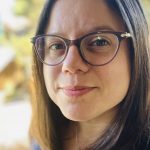
Dr. Caren Walker
How much value will this FREE, unticketed, online experience have for you? Please consider a commensurate donation to nonprofit Wonderfest in the space below. (Don't be misled if the word "tickets" appears in that space. Please do carry on!)
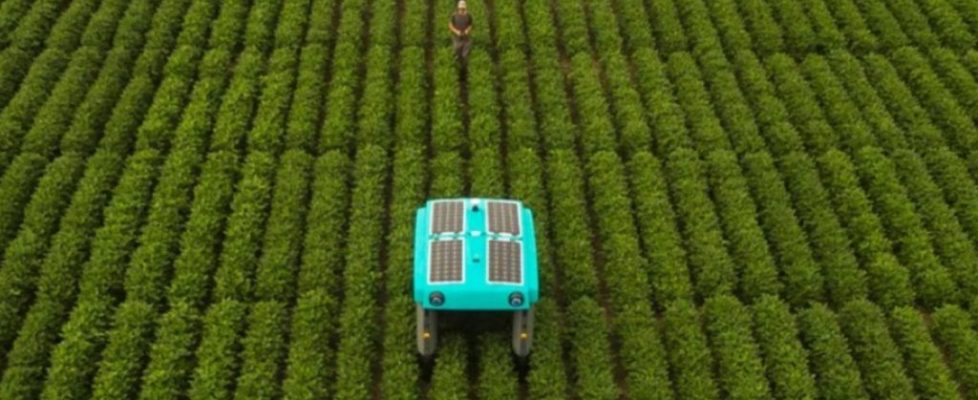
Robots & Food – Oct 25
Humans have grown food for over 10,000 years. As Earth’s climate changes and the global population seeks fresh and healthy nutrition, advances in robotics gradually transform agriculture: robots assist in precise irrigation, drones fine-tune fertilizer delivery, and mobile robots optimize plant breeding. Robots even help combine research and art. In 1995, over 100,000 people remotely collaborated to tend a living garden; and in 2020, researchers trained a robot to sustain a diverse polyculture garden. Alas, robot help in the kitchen is significantly harder to achieve than on the farm.
Our presenter, Dr. Ken Goldberg, is Professor of Industrial Engineering and Operations Research at UC Berkeley. He is an award-wining roboticist who directs Cal’s Automation Laboratory, and he is a filmaker and artist who works to bridge “the two cultures” of science and art.
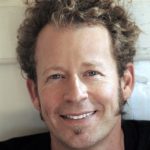
Dr. Ken Goldberg
This admission-free Wonderfest event will be COVID-free, as well, because we ask that attendees be masked (except when dining/drinking) and vaccinated. The warm feeling of Wondernaut camaraderie radiates through masks and across social distances; please join us! Also, please consider contributing to Wonderfest's mission of science outreach via the inaptly-named "tickets" button, below.
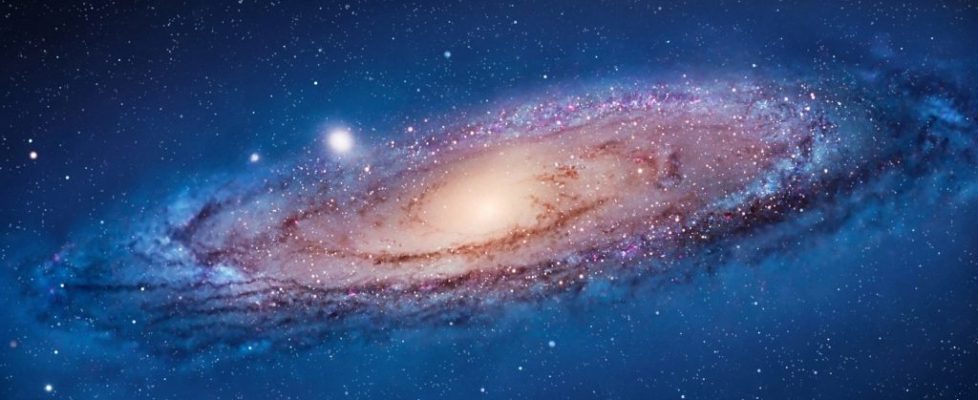
Galactic Archaeology – Oct 16
Globular star clusters are among the oldest astronomical objects in the Universe. Accordingly, they can provide valuable information about the early evolution of the galaxies they inhabit. This presentation, focussing on the Milky Way and Andromeda galaxies, will show what globular clusters reveal about their host galaxies’ chemical composition. We will also explore the mysteries that still surround globular cluster formation, and possibilities for future observations.
Our speaker, Dr. Charli Sakari, is Assistant Professor of Physics and Astronomy at San Francisco State University. She earned her PhD as a Vanier Scholar at the University of Victoria in British Columbia. This Zoom event is part of the 2021 Mount Tam Astronomy Program.
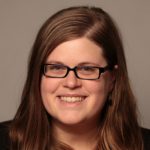
Dr. Charlie Sakari
Mount Tamalpais Astronomy Program [https://www.mttamastronomy.org/home]
What value does this experience have for YOU? Accordingly, please consider sending a donation to help Wonderfest share the excitement — and civic value — of science via the inaptly-named "tickets" button, below.
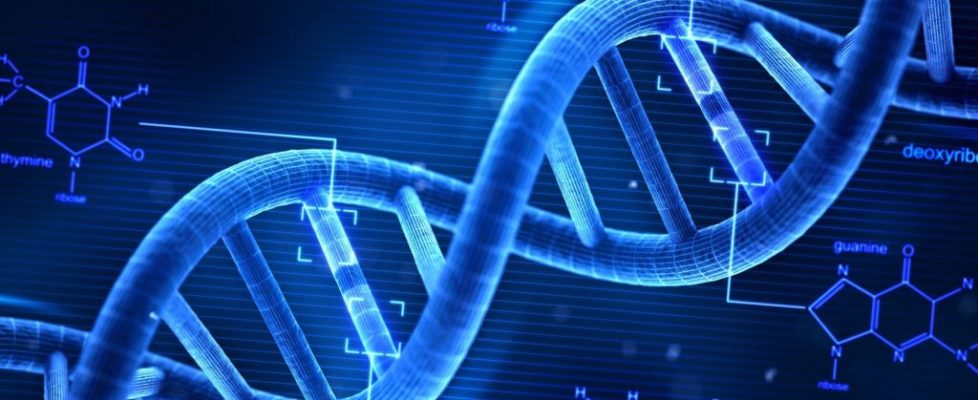
The Blueprints of Life – Sep 27
Although humanity now knows the genetic sequences of many animals (including ourselves), the functions of these sequences — the blueprints of life, so to speak — often remain a mystery. In recent years, we have harnessed the power of synthetic biology and theoretical physics to glean new understanding of these mysterious genetic sequences. This presentation will highlight some new ways of thinking that have led to breakthroughs in decoding the blueprints of life.
Our speaker, Dr. Jonahan Liu, is a computational biologist and data scientist at Chan-Zuckerberg Biohub. Upon receiving his PhD, Dr. Liu gave the Physics Department graduate commencement address at UC Berkeley.
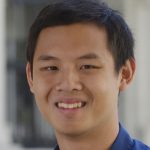
Dr. Jonathan Liu
This admission-free Wonderfest event will be COVID-free, as well, because we ask that attendees be vaccinated and masked. (Of course, lower masks to enjoy HopMonk food/drink.) The warm feeling of Wondernaut camaraderie radiates through masks and across social distances; please join us! Also, please consider contributing to Wonderfest's mission of science outreach in the Eventbrite space, below.
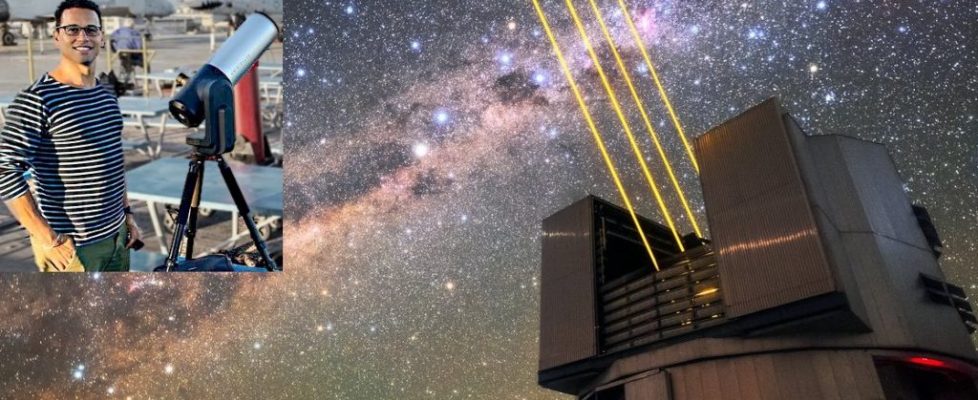
Advanced Astro Instruments – Sep 11
Ground-based telescopes have come a long way in recent decades. Today they can take advantage of adaptive optics systems that reduce the effect of atmospheric image distortion, and, also, of fast compact computers that allow small telescopes to reach the capability of large telescopes. The result is a lively community of citizen astronomers who (among other things) can detect exoplanets and help study the size, shape, and trajectory of near-Earth asteroids.
Our speaker, Dr. Franck Marchis, is Senior Planetary Astronomer at the SETI Institute’s Carl Sagan Center. He is also Chief Scientific Officer at Unistellar, maker of citizen scientist telescopes. This Zoom event is part of the 2021 Mount Tam Astronomy Program.
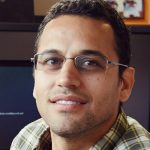
Dr. Franck Marchis
Mount Tamalpais Astronomy Program [https://www.mttamastronomy.org/home]
What value does this experience have for YOU? Accordingly, please consider a donation (in the Eventbrite space below) to help Wonderfest share the excitement — and civil value — of science.
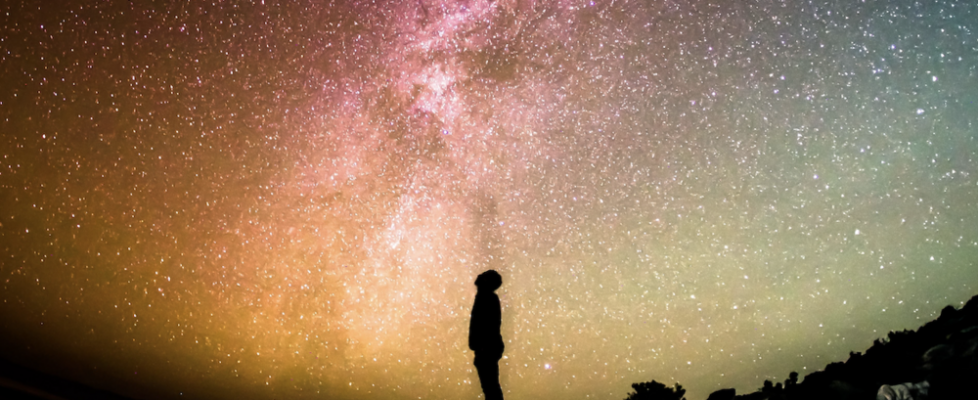
Fear of a Black Universe – Sep 24
In his latest book, Fear of a Black Universe: An Outsider’s Guide to the Future of Physics, Brown University’s Dr. Stephon Alexander explores some of nature’s deepest questions. He uses the principles of invariance, quantization, and emergence to address ideas at the outer limits of physics, including even what happened before the big bang and what makes consciousness possible! Dr. Alexander argues that further progress in physics will likely be enhanced by embracing the excluded, listening to the formerly unheard, and being fearless in the face of possible error.
Dr. Stephon Alexander is Professor of Physics at Brown University. Access to this online conversation with the Commonwealth Club’s George Hammond will be admission-free for registrants who apply the discount code WONDERFEST.
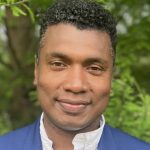
Dr. Stephon Alexander
While taking event registration steps via the Commonwealth Club weblink above, apply discount code WONDERFEST to receive FREE admission ($5.50 otherwise).

Aging and Cancer – Aug 30
Aging greatly increases our susceptibility to a myriad of diseases, ranging from neurodegeneration to cancer. Given the very different tissues and manifestations of these diseases, aging researchers suspect there are basic aging processes that drive all or most of them. One such process is cellular senescence. Researchers, including those at Marin’s Buck Center, are now beginning to understand the senescence response in some detail and, importantly, beginning to develop new drugs to deal with senescent cells.
Our presenter, Dr. Judith Campisi, is Professor of Biogerontology at the Buck Institute for Research on Aging. She is also co-editor-in-chief of Aging Journal, and founder of the pharmaceutical company Unity Biotechnology.
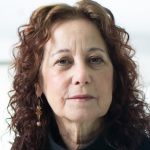
Dr. Judith Campisi
To attend this FREE, in-person event, full COVID vaccination is required, as are masks (except while enjoying HopMonk food/drink). Please consider using the Eventbrite space below to contribute to nonprofit Wonderfest's work for public enlightenment through science understanding.

